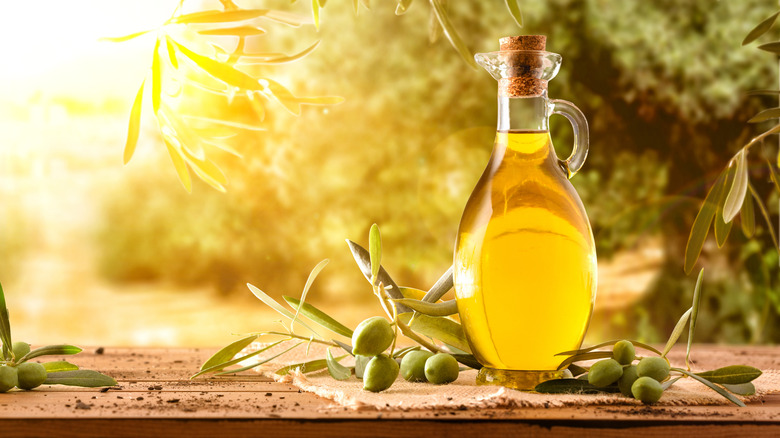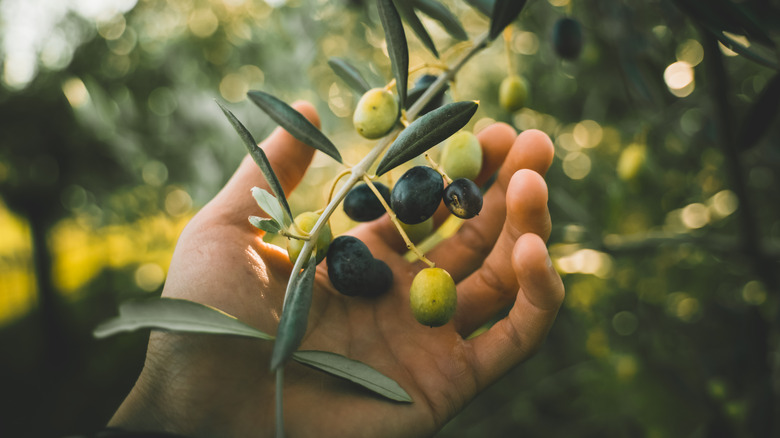Is Olive Oil Technically Fruit Juice?
In a recent Tasting Table poll, the title of most popular cooking oil went to olive oil, and it wasn't even close. The Mediterranean favorite earned nearly 60% of the vote, more than double that of the runner-up, vegetable oil. Today, you'll find olive oil in nearly every kitchen, but this would have been unthinkable as recently as 1990. As the Chicago Tribune reveals, olive oil's rapid rise in popularity began with a carefully calculated marketing push. K. Dun Gifford, a former aide to Robert and Ted Kennedy (per The New York Times), fell in love with olive oil on a trip to Italy in 1990. When he returned to the States, he obtained funding from numerous international groups like the Italian Trade Commission and the Olive Oil Promotion Committee of Turkey. Through aggressive advertising and press coverage, Gifford turned olive oil into a household staple.
A huge factor driving olive oil's popularity is its potential health benefits. Healthline notes that olive oil is rich in monounsaturated fats, or "healthy fats." It also contains a number of antioxidants, and may even reduce the risk of heart disease by lowering blood pressure and protecting against unhealthy cholesterol. It seems that the more we learn about olive oil, the more benefits we uncover. Yet, for all our present knowledge, we may have gotten the most basic detail wrong: the name itself.
A juice by any other name
Olive oil is, in fact, a type of fruit juice. Olives belong to a group of fruits called drupes. According to Britannica, "drupe" is the proper botanical label for stone fruit, that is, a fruit that typically has only one seed, protected by a hard shell known as a pit. Other examples of drupes include peaches, cherries, and mangoes. In fact, raspberries and blackberries are actually clusters of very small drupes. The olive oil production process closely mirrors that of other fruit juices, but not the production of other cooking oils. The Seattle Times explains that olive oil is made by crushing the fruit to separate the juice from the solid flesh. On the other hand, seed-based oils such as sunflower, safflower, and canola oil, are produced with the aid of chemical solvents.
Despite the fact that olive oil is technically a form of fruit juice, we use it like any other kitchen oil, so the moniker is not entirely inappropriate. While drinking olive oil has gained some popularity as a health trend, it can't be treated like other fruit juices. Firstly, it's quite calorie-dense, and drinking large quantities can cause an upset stomach. While some olive oil has a lower smoke point than other popular kitchen oils, it still has the texture and cooking properties we associate with oil. So, now that you've learned the true nature of olive oil, you can go right back to calling it what you always have.

